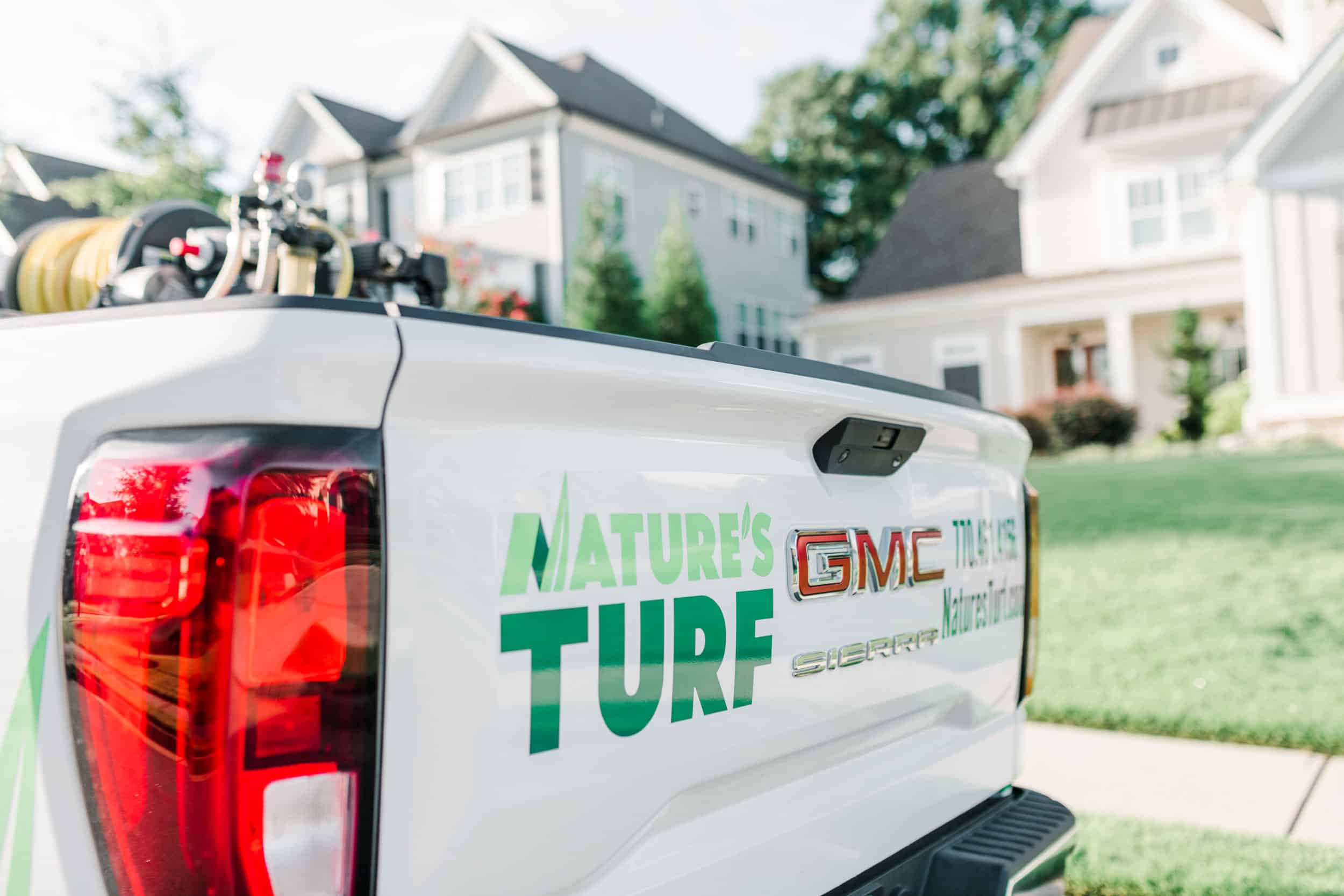After fighting with shade in your Atlanta-area yard, you’ve decided that the solution to your problems is tall fescue. The dark green color, tall cut heights, and mowing stripes are all draws to this cool-season turfgrass, but if you’re used to the weed control schedules, strategies, and cleanliness of warm-season turfs such as bermuda and zoysia, it’s important to know that controlling weeds in fescue is a little different. Read on to learn about how to control weeds in your fescue lawn.
Aeration and Overseeding Your Fescue
Because turf-type tall fescues are established from seed, you should schedule aeration and overseeding in the fall to achieve the greatest density. These practices are necessary to replace density lost during the hot summer months when fescues are least comfortable. They have a bunch-type growth habit and don’t spread like our bermuda and zoysia varieties. Timing of aeration and overseeding is generally around the same time we apply pre-emergent weed control to bermuda and zoysia lawns—in the fall.
While the optimal window spans several weeks in Atlanta’s temperate climate, fall is the prime season to overseed fescue. If planted too early, high heat threatens the soft leaves of new fescue plants. Plant too late, and those soft leaves are susceptible to injury from freezing temperatures. The primary modes of action for pre-emergent weed control products regulate root formation. This stops weeds in their tracks, but these products aren’t selective and will also stop fescue seed from establishing roots. It’s important to give new fescue plants time to establish roots before applying these products, but it’s important to understand this may mean breakthrough for a few winter weeds. Your lawn care professionals at Nature’s Turf can help with planning, timing, and execution of all of these important steps to help your fescue be healthy and look its best.
Why Selective Weed Control in Fescue Is Less Effective
Selective weed control products work by targeting a biological function in a weed that isn’t present in a desirable plant such as fescue. If you’ve previously had bermuda or zoysia, you may be used to having weed control products for all but the most stubborn weeds in your landscape. Control of broadleaf weeds in fescue lawns is still effective, but fescue is so similar to grassy weeds that it will be killed by many of the selective products used in bermuda and zoysia lawns.
Of these pesky grassy weeds, Poa annua and Poa trivialis are often most frustrating to remove since they are cool-season grasses and germinate around the same time our fescue seed does. Once established, control of these weeds may take the most extreme measures.
How Do I Get Rid of Weeds in My Fescue Lawn?
Above all else, good cultural practices and a good pre-emergent program are still fundamental to slowing the establishment and spread of weeds in fescue. Weed control in fescue requires strategy, and it requires knowledge to know what method will yield the best results. As is true in all turfs, a really good offense greatly helps defend against the establishment of weeds. To limit the germination and success of weeds, follow these best practices:
- Cut at a height of 3-4″ to help shade the soil’s surface.
- Water an inch per week over 2-3 non-consecutive days. This water can come from natural rainfall or irrigation.
For broadleaf weeds, selective weed control is still an option. Treating early and often is the trick if broadleaves start to break through. Limiting the size of the area they dominate will limit the bare area left by their control.
When discussing grassy weeds, we have to approach the subject with the idea of a threshold. At what point do they become so bothersome that control is necessary? That question can only be answered by the property owner. Small spots can be treated ahead of overseeding with non-selective weed control products, accepting that injury to the fescue will be recovered during the overseeding process. Widespread areas may require a full restart.
If you have questions about weed control in your fescue, programs that can help get weeds under control, or what to do if your lawn has more weeds than turf, give us a call at 678-831-6343 or email us at Nature’s Turf.








